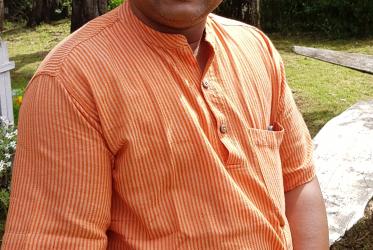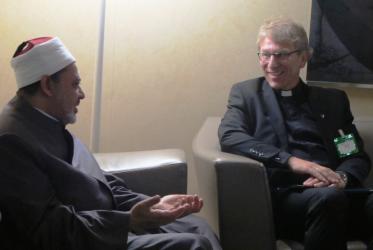Displaying 1 - 10 of 10
06 September 2022
In a COVID-stricken world, “everyone is important”
23 October 2020
Paving the way for ecumenical studies, learning English in Bossey
24 September 2018
Dr Samuel George: “Ensure all are included"
12 June 2018
Dialogue flourishes between WCC, Muslim Council of Elders
30 September 2016
Theological education initiative begins in Seoul
28 October 2013






